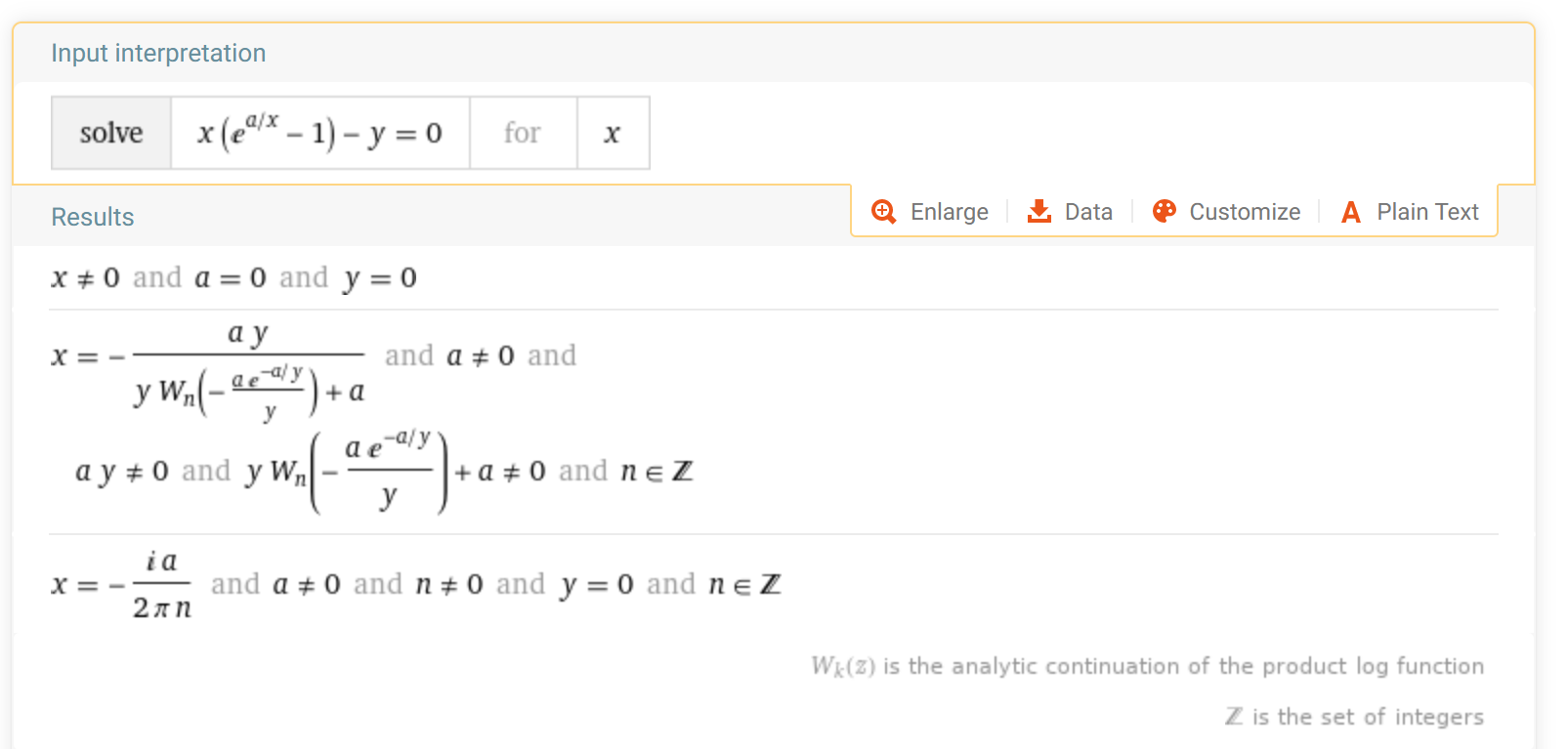When trying to solve the equation in the title with WA, it produced the following as the solution:
now, if you divide the numerator and denominator by $y$ and set $z:=-\frac{a}{y}$ the solution becomes
$$\frac{a}{W_n(z\,e^z)-z}\ =\ \frac{a}{z-z}\ =\ \frac{a}{0}\ =\ \infty$$
Questions:
- can $x\cdot(e^{\frac{a}{x}}-1)-y=0$ be solved for $x$ and can the solution be expressed with the Lambert $W_n$ function resp.
- can the correctness of the result generated by by WA be explained?

